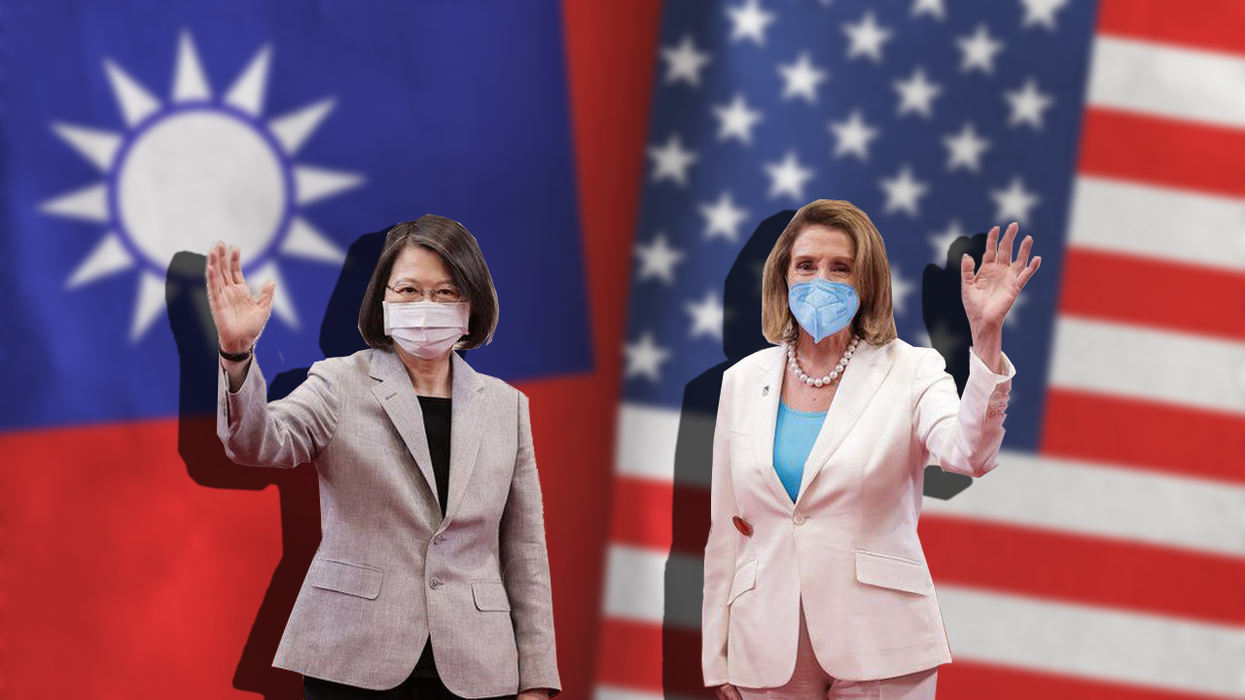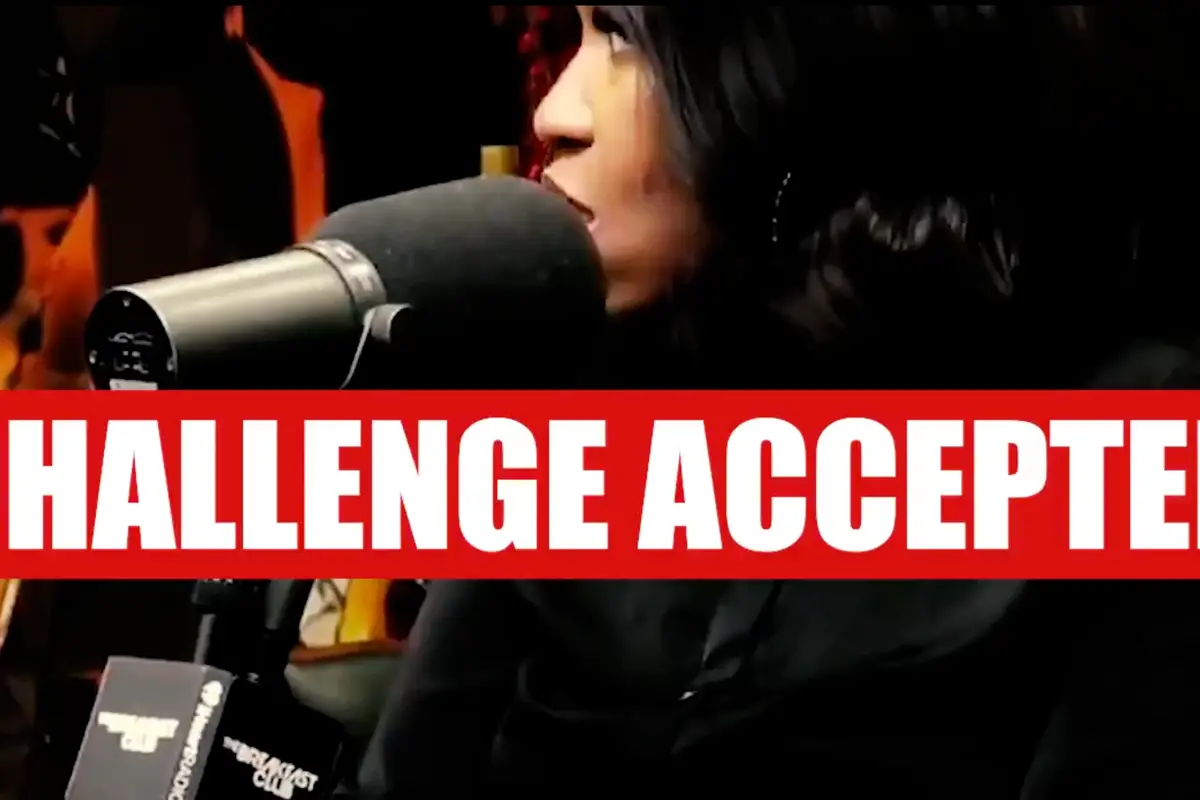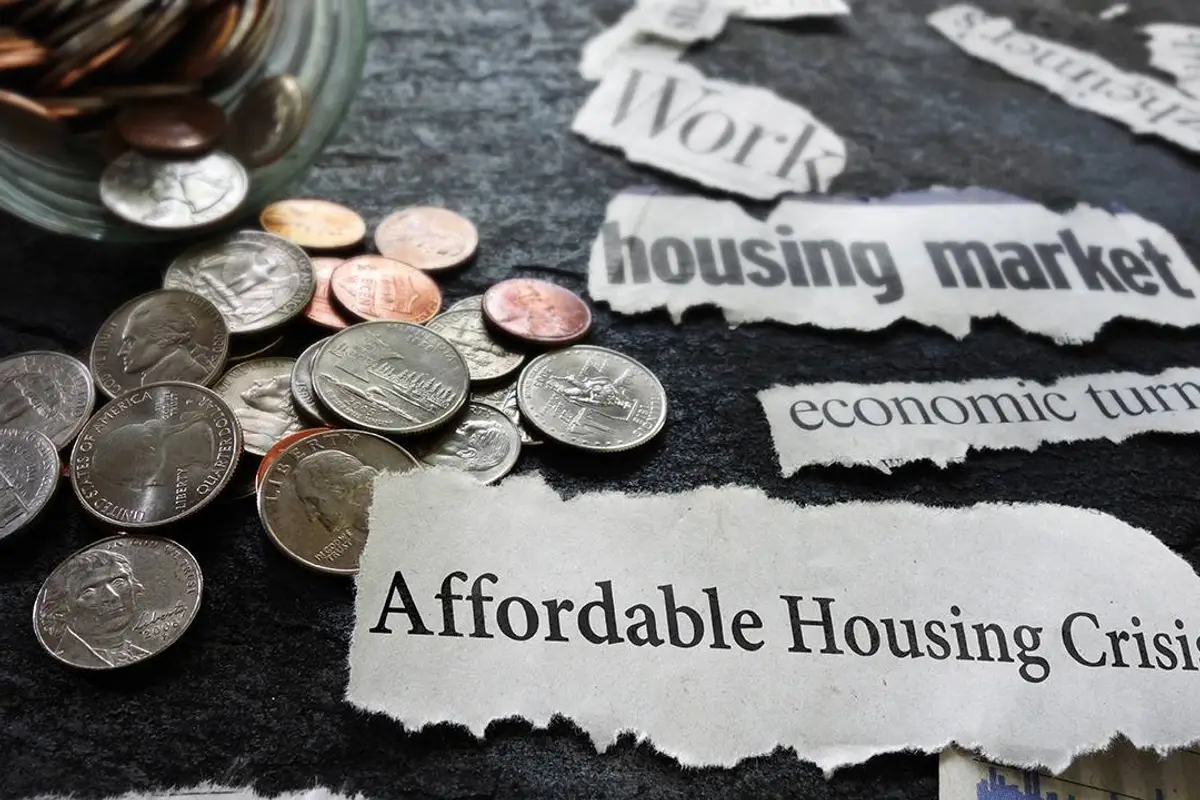
×
Please verify
Each day we overwhelm your brains with the content you've come to love from the Louder with Crowder Dot Com website.
But Facebook is...you know, Facebook. Their algorithm hides our ranting and raving as best it can. The best way to stick it to Zuckerface?
Sign up for the LWC News Blast! Get your favorite right-wing commentary delivered directly to your inbox!
InternationalAugust 04, 2022

What Pelosi's Taiwan Visit Means for the American Grand Strategy
At just after 10:40 p.m. local time, on Tuesday night, US Speaker of the House Nancy Pelosi landed at Taipei’s Songshan Airport.
Pelosi’s touchdown marked the highest level American visit to the Island since then-Speaker Newt Gingrich traveled to Taiwan in 1997. Though many comparisons can certainly be made, much has changed surrounding the geopolitical circumstances in East Asia.
Gingrich’s visit came just over a year after the Third Taiwan Strait Crisis, so to say the political environment at the time was tranquil would no doubt be an overstatement. However, when compared to current circumstances one would have to say the stakes of the Pelosi visit are markedly higher.
One notable reason for this is the increased strength of Beijing over the preceding 25 years. In 1997, China’s GDP was $961B, it’s now nearly $15T. Its military spending was $15.7B, today it’s more than $250B. In 1997, China possessed zero aircraft carriers, and today, it fields two combat-ready carriers with a third on the way.
Perhaps more telling of the changing landscape is Chinese rhetoric. In the late 1990s, China was still operating from former Paramount Leader Deng Xiaoping’s famous dictum, “Hide one’s capabilities, and bide one’s time” (tao guang yang hui). Deng’s belief essentially advocated for China to hide in the background while it amassed power, and only when the level of power was sufficient should Beijing look to take a leadership role.
Well, under Xi Jinping that time has arrived, at least as far as the current leadership in Beijing is concerned. According to internal documents, China seeks regional and then global domination, and it sees the US as the biggest hurdle in its way. However, it doesn’t take access to classified documents to understand China’s intentions. Its leaders and diplomats are more than comfortable with being publicly aggressive and antagonistic towards the US.
And, on top of the rhetoric, China continues to try to expand its influence abroad via Xi’s keystone policy: the Belt and Road Initiative--which promises infrastructure and economic growth in developing economies, but more often results in high-interest debts that recipient countries can’t pay back. This means that China is able to take over projects and land in these countries, as it did in Sri Lanka when it was granted a 99-year lease on the Port of Hambantota after Colombo defaulted on its payments.
In short, America is dealing with a much stronger, more ambitious, and increasingly more aggressive China than it was in 1997.
Given the circumstances then, what does Pelosi’s visit signal regarding America’s overall strategy? Why would she choose now to go, and what will change now that her trip has concluded?
The skeptic would say that Pelosi’s trip was born out of her own political calculation. Her party is floundering, and her position as Speaker will almost certainly come to an end in November, so it wouldn’t be particularly out of the realm of likelihood that she saw a trip to Taiwan as a chance to lionize herself. In fact, these considerations are almost certainly at the forefront of Pelosi’s motivation.
This becomes even more likely when one considers that President Biden was initially not too fond of the idea. Given his atrocious approval rating, it definitely doesn’t hurt Pelosi to move against his wishes.
Anyway, answering this question would require getting inside Pelosi’s head, and that seems like it might be a confusing place to wind up. But the fact remains, she did make the trip, and regardless of her individual intent, it does signal to both our allies and enemies in the region.
Since the Taiwan Relations Act of 1979, Washington has practiced strategic ambiguity. While it refuses to commit to Taiwan’s defense in the event of a Chinese invasion, it also has left that option in play. The goal, of course, is to deter Beijing while also discouraging Taipei from formally declaring independence, which would almost certainly trigger immediate retaliation from China and the People’s Liberation Army (PLA).
While Biden’s national security spokesman John Kirby insisted that Pelosi’s trip was actually upholding the status quo, you’d be hard pressed to find anyone in Zhongnanhai that agrees. And the evidence in this case, as exemplified by the trip itself, leans in the direction of Beijing’s interpretation.
Pelosi’s trip included meetings with the foreign ministry, leaders in the semiconductor industry, and a press conference with Taiwanese president Tsai Ing-wen.
The joint press conference was filled with political speak regarding economic exchange and budding relationships, very par-for-the-course type of stuff. But in her opening remarks, Pelosi did, perhaps subconsciously, point out the contradiction in America’s Taiwan policy.
"Let's just put it in perspective. Four decades ago, the Taiwan Relations Act was built–in building a strong bond between our two countries: advancing our shared interests of governance, economy, and security, while respecting the "One China" policy. Our solidarity with you is more important than ever, as you defend Taiwan and their freedom.”
Well, which is it? Does America support the "One China" policy or Taiwan’s right to self-determination? Because those positions are increasingly mutually exclusive.
When Pelosi notes that American solidarity with Taiwan is more important than ever, she’s absolutely correct. But substantively, what is America doing to address this need?
For all the reasons this article has addressed already, coupled with CCP’s long-held belief that China’s rejuvenation will only be complete after the absorption of Taiwan, it’s imperative that the US change its strategy vis-a-vis Taiwan and East Asia in general.
As Elbridge Colby points out in his newest book, America’s top foreign policy goal should be preventing another state from gaining regional hegemony, most chiefly China in Asia. This is due to a combination of China’s power in comparison to other potential regional threats like Russia, as well as Asia’s overall importance. For instance, when it comes to global GDP, Asia’s share trumps that of Europe’s, and the gap is only growing.
In short, Colby’s well-substantiated claim is that once China achieves hegemony in Asia, it will have the ability to drastically manipulate the American way of life and potentially seek to project its domain across other regions.
While China is busy in a multitude of theaters in its attempt to achieve hegemony, the most important and crucial prize in Beijing’s eyes is Taiwan. A Chinese takeover of Taiwan, while not sufficient, is absolutely necessary to achieve this goal. Therefore, it’s imperative that America prevent this from happening.
While Speaker Pelosi’s trip is undoubtedly symbolic, it does nothing to actually address the systemic problems that are developing in the region.
What is required of Washington to protect Taiwan and deny China’s bid for hegemony goes far beyond official visits and political posturing. It requires concrete change in the way America conducts foreign policy.
Understanding then, that Asia is the most important theater in the world, it would behoove decision makers in Washington to make choices that reflect this reality. However, instead of consolidating more resources in the Pacific, the US is increasing its commitments to Ukraine and Europe.
At a June NATO summit in Madrid, Biden committed to the Ukraine effort for “as long as it takes,” and on Tuesday, John Kirby announced the US would send an additional $550 million in military aid to Kyiv. This brings the figure to more than $8 billion in total aid since Russia launched its invasion. The US has also increased its troop deployment in Europe to 100,000, up from 80,000 pre-invasion.
As admirable as the Ukrainians are and as noble as it might be to want to support their cause indefinitely, the truth is that these moves are counterproductive. They pull resources and focus that should be concentrated in Asia.
By effectively concentrating military resources in Asia, the US will signal to China that it is committed to the region and denying Beijing’s ambitions. In the same breath, Washington should also change its Taiwan policy, and officially discard any adherence to the "One China" policy.
Strategic ambiguity served a purpose for much of the Cold War era, and it was even understandable in the 1990s when there was at least a hope that China would reform and Westernize. However, with the Soviet threat long gone and the theory of a liberal China thoroughly dispelled, the "One China" policy serves no purpose. It merely handicaps potential cooperation between Taipei and Washington.
A continuing insistence on refusing to commit to the Asian theater, and the perpetuation of word games to appease Beijing will only lead to confusion and uncertainty in the Taiwan Strait and all of East Asia. This confusion will not reduce, but significantly increase the likelihood of conflict with an increasingly emboldened China.
America should take a note from China and develop a grand strategy focused on broad horizons, not merely political considerations of the day. The first step in doing so is realizing that Asia, and not Europe, will dominate the 21st century and China is the main threat to the order America has sacrificed so much to build.
By accepting this premise, one can’t reasonably argue defending Taiwan isn’t of paramount concern to the American people.
While Pelosi’s trip in itself doesn’t solve or even address these issues in a meaningful way, it does provide the opportunity for the US to seriously consider what its relationship with Taiwan should be and what its overall strategy should look like.
China has certainly taken note of the visit and responded in bombastic fashion.
Shortly after Pelosi departed Taipei en route to Seoul, China’s Assistant Minister of Foreign Affairs, Hua Chunying, tweeted, “The US is the provocateur, and China is the victim. The US side colluded with Taiwan and made provocations first, whereas China has been compelled to act in self-defense.”
And, the spokesman for the State Council’s Taiwan Affairs Office, Ma Xiaoguang, exclaimed that Tsai and her ruling party, the Democratic Progressive Party (DPP) were “pushing the island into the abyss of disaster.”
The Chinese response hasn’t just been talk, either. According to the South China Morning Post, China announced starting Thursday it would begin live-fire drills in seven locations surrounding Taiwan’s coastline, effectively blockading the island.
Pelosi’s visit provides much-needed momentum and reflection for policymakers in Washington, and it mustn’t be squandered. There are only so many more opportunities for America to come to terms with its geopolitical reality. China already has, and the clock is ticking.
The Louder with Crowder Dot Com Website is on Instagram now! Follow us at @lwcnewswire and tell a friend!
Crowder REACTS to Pelosi's Taiwan Visit Amid China's Threats | Louder With Crowderwww.youtube.com
From Your Site Articles
- China Continues War Against Islamism. Bans Muslim Baby Names ... ›
- Andrew Schulz Goes Viral for Rant on How China Uses TikTok ... ›
- WH refuses to denounce China threats to Nancy Pelosi's Plane ... ›
- Move Over, Russia! China Is Going to F**K Taiwan! - Louder With ... ›
- Disney Star Puts Hollywood on Blast for Satanic Influence - Louder ... ›
- Report: Senate Republicans Reveal China Infiltrated Federal Reserve ›
- Pelosi is visiting Taiwan and China is pretty pissed - Louder With ... ›
Latest





